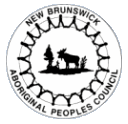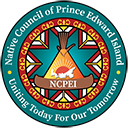The Mi’kmaq, Malecite, Passamaquoddy/Aboriginal Peoples of Canada, continuing on traditional ancestral homelands, sometimes referred to as the traditional homelands Aboriginal Peoples or off-reserve Aboriginal Peoples, throughout the North East Maritime Region of East Coast North America resolved in the early 1970s to end the plight of social, economic, political and distinctive cultural exclusion from the Federation of the Peoples of Canada.
The communities in the region organized themselves to establish their collective voice to the councils of governments, and to work in partnership for their inclusion in all spheres of life in Canada, as the Aboriginal Peoples of Canada – the first peoples of the first nations of Aboriginal Peoples in this region – the Mi’Kmaq, Malecite, and Passamaquoddy.
The bond to the traditional ancestral territorial lands, waters, coasts, flora, fauna and resources continues from the Paleo-Indian period 10,500 years ago to the present. As a direct result of policies and acts of the past that continue to the present as to who an Indian is and where an Indian belongs, the traditional ancestral homeland Aboriginal Peoples in the Maritime Region of Canada, established the need to organize for change.
In the province of New Brunswick, the community organized in 1972 and instituted their governing Council, today known as the New Brunswick Aboriginal Peoples Council. Similarly in Nova Scotia, the Native Council of Nova Scotia was established in 1974. In Prince Edward Island the community organized in 1975 and formed the Native Council of Prince Edward Island.
Collectively, the Councils as Aboriginal Peoples Representative Organizations have continued to work within their respective communities for social and economic improvement and actively advocate politically to the councils of governments.
When regional issues and solutions are identified, the elected Aboriginal Leaders of their respective Aboriginal Peoples Representative Organizations meet in an Aboriginal Leaders Intergovernmental Forum. The Maritime Aboriginal Peoples Council (MAPC) was formed in 1982 and is officially registered as an Aboriginal Peoples Intergovernmental Regional Body under the Canada Corporations Act.
Nova Scotia
 Early in 1985, the Native Council of Nova Scotia established its Natural Life Management Authority, the Netukulimkewe’l Commission, for the community within Nova Scotia. Shortly thereafter, the NCNS Community planned and established a communal commercial fishery enterprise, Mime’j Seafoods Limited.
Early in 1985, the Native Council of Nova Scotia established its Natural Life Management Authority, the Netukulimkewe’l Commission, for the community within Nova Scotia. Shortly thereafter, the NCNS Community planned and established a communal commercial fishery enterprise, Mime’j Seafoods Limited.
NCNS Aboriginal Communal Commercial Fishery Enterprise
Mime’j Seafoods Limited is dedicated to managing the communal commercial fisheries for the economic well being of the community throughout Nova Scotia. Mime’j has a small core management infrastructure and a growing number of licenses, fishing vessels and equipment and draws on a cadre of Aboriginal fishers with varying levels of experience to harvest communal commercial fisheries.
Mime’j Seafoods Limited, a communal commercial fishery enterprise managed through the NCNS Netukulimkewe’l Commission for the economic well being of the community, is establishing access, participation and position in the commercial fishery, and is considered an Aboriginal communal commercial fishery entity leader in the region.
New Brunswick
 The New Brunswick Aboriginal Peoples Council established their natural life management regimes in the mid 1980’s.
The New Brunswick Aboriginal Peoples Council established their natural life management regimes in the mid 1980’s.
After several years of developing experience in managing food, social and ceremonial sustenance fisheries, NBAPC established the stand-alone communal commercial fishery enterprise, Aboriginal Seafoods Network Inc.
NBAPC Aboriginal Communal Commercial Fishery Enterprise
Aboriginal Seafoods Network Inc. is an Aboriginal communal commercial fishing entity with growing involvement in the Atlantic commercial fisheries. With more licenses, vessels, equipment and a growing cadre of community fishers, Aboriginal Seafoods Network Inc. is dedicated to the growth, economic well being and self-sufficiency of the community.
Prince Edward Island
 The Native Council of Prince Edward Island has a community fisheries program and has recently segregated the management of their food, social and ceremonial fisheries from the management and operations of their communal commercial fisheries, L’nu Fisheries Limited.
The Native Council of Prince Edward Island has a community fisheries program and has recently segregated the management of their food, social and ceremonial fisheries from the management and operations of their communal commercial fisheries, L’nu Fisheries Limited.
NCPEI Aboriginal Communal Commercial Fishery Enterprise
L’nu Fisheries Limited is gaining more access and participation in the commercial fishery with more licenses and vessels to communally fish in and around Prince Edward Island. L’nu Fisheries Limited has a communal commercial fisheries manager and several vessels and licenses establishing a community presence in the PEI fishery.
The MAARS Collaborative Body
All three communal commercial fishery entities are community fisheries development enterprises, for their community organized Aboriginal Peoples Representative Organizations. Each naturally realized the benefit and value of developing a collaborative aquatic resources and oceans management partnership in the region to advance the sustainable and viable growth of community commercial fisheries.
MAARS is the natural progression of relationships with Fisheries and Oceans Canada, moving from access and growing position in the Atlantic commercial fisheries to developing greater effective participation and involvement of our Aboriginal Peoples in aquatic resources, oceans management, and commercial fishing industry decision making governance.
Decision making governance about aquatic resources, oceans management, commercial fishing plans and oceans environment transects in this era of aquatic resources depletion, oceans damage and commercial fishing industry economic pressures must be approached through sustainable development actions.
Integrating economic, environmental and social considerations into one holistic single unit of thinking in all decision making will take time for people to understand and apply. Decision making for economic progress, community well being and environmental integrity requires the involvement of all interests to govern under sustainable development.
We all hold a duty and responsibility to advance economic progress and social development with a healthy living oceans environment. The environmental integrity of our oceans must be saved for our future generations to also witness and benefit from the greatness of creation. The quality of life today must be shaped with decisions inclusive of all Canadians from sea to sea, including the knowledge of Aboriginal Peoples. Decisions today will preserve the legacy for tomorrow, when our future generations will continue to make decisions for their future generations and for the continuum of social progress, economic prosperity, and environmental integrity.
